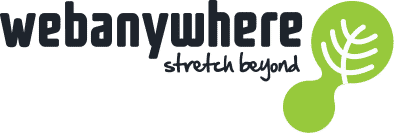Top 10 eLearning Terms and Jargon You Should Know

Did you recently accept a job in the eLearning industry? Or maybe you’re looking for your next best eLearning project investment? Whatever the case, chances are you may or may not be familiar with the jargon that is widely used in the eLearning industry. These terms could seem like buzzwords for the amateurs but serve as essential knowledge for an eLearning professional.
Let’s take a look at some of these helpful terms:
1. Learning Management System (LMS)
A software platform or application that can be used to create, manage, deliver, and track all types of learning content. It enables you to make your learning content available to the target audience round-the-clock and supports a variety of purposes including hosting online content — courses that are both asynchronous and synchronous, selling online course content, and analyzing and evaluating learners’ performance. Modern-day LMSs like Totara include smart algorithms to make course recommendations based on the learners’ profiles.
2. Learning Analytics
The process of measuring, collecting, analyzing, and reporting data during an online learning activity could be described as learning analytics. It supports the purpose of understanding and improving learning outcomes. It is used to:
- Measure the key performance indicators of students’ performance
- Support the development of students
- Enhance the effectiveness of teaching strategies
- Make informed decisions
3. Learning Experience Platform (LXP)
The LXP is learning software that helps in creating personalized learning experiences for the target audience. With the help of an LXP, the users are able to discover new and enhanced learning opportunities by combining content from different sources, recommending, and delivering them with the aid of advanced technologies like Artificial Intelligence (AI).
4. Instructional Design (ID)
ID, also known as Instructional Systems Design (ISD) is the process of creating learning interventions or experiences that help in acquiring and developing new knowledge and skills.
5. Microlearning
Microlearning could be defined as a way to deliver learning content to the target audience in bite-sized and focused bursts. Each unit of a microlearning module focuses on a single learning objective and outcome.
6. Synchronous learning
Synchronous learning could be defined as instructor-led learning in a virtual setting. In this process, the learners log in at the same time while there is a virtual instructor to guide them through the learning intervention.
7. Asynchronous learning
Asynchronous learning could be described more as a learner-centered approach in which the learner completes the learning modules or training at their own pace and convenience.
8. Gamification
Gamification is an educational approach used to teach and motivate learners by implementing game-based elements in learning environments. The goal of gamification is to maximize engagement by capturing the interest of learners and inspiring them to continue with their learning. Typically, there are two types of gamification — structural and altered content.
9. Experience API / Tin Can ( xAPI)
xAPI, formerly known as Tin Can is defined as the process of tracking learning experiences. It can be used to track any kind of learning activity and delivers a detailed view of the learners’ process, both online and offline. An xAPI activity statement usually records experiences in an “I completed this” or “I did this” format.
10. Accessibility
When it comes to digital learning, accessibility becomes a crucial factor. Accessibility implies that the course content should be accessible to people with varied abilities and disabilities. eLearning Designers/Instructional Designers should create the courses in a way that is simple to navigate and understand. Learners with sensory or technological difficulties might need the aid of assistive technology to successfully access and complete the learning modules.
Conclusion
Now that you’re familiar with the most-used eLearning jargon, you’re all set to create a memorable learning experience.
A reliable LMS makes your eLearning journey less stressful and more enjoyable. If you are looking for an LMS that fulfills your business requirements and helps deliver a better experience, then delay no more and contact us today for a demo of the Totara LMS.


